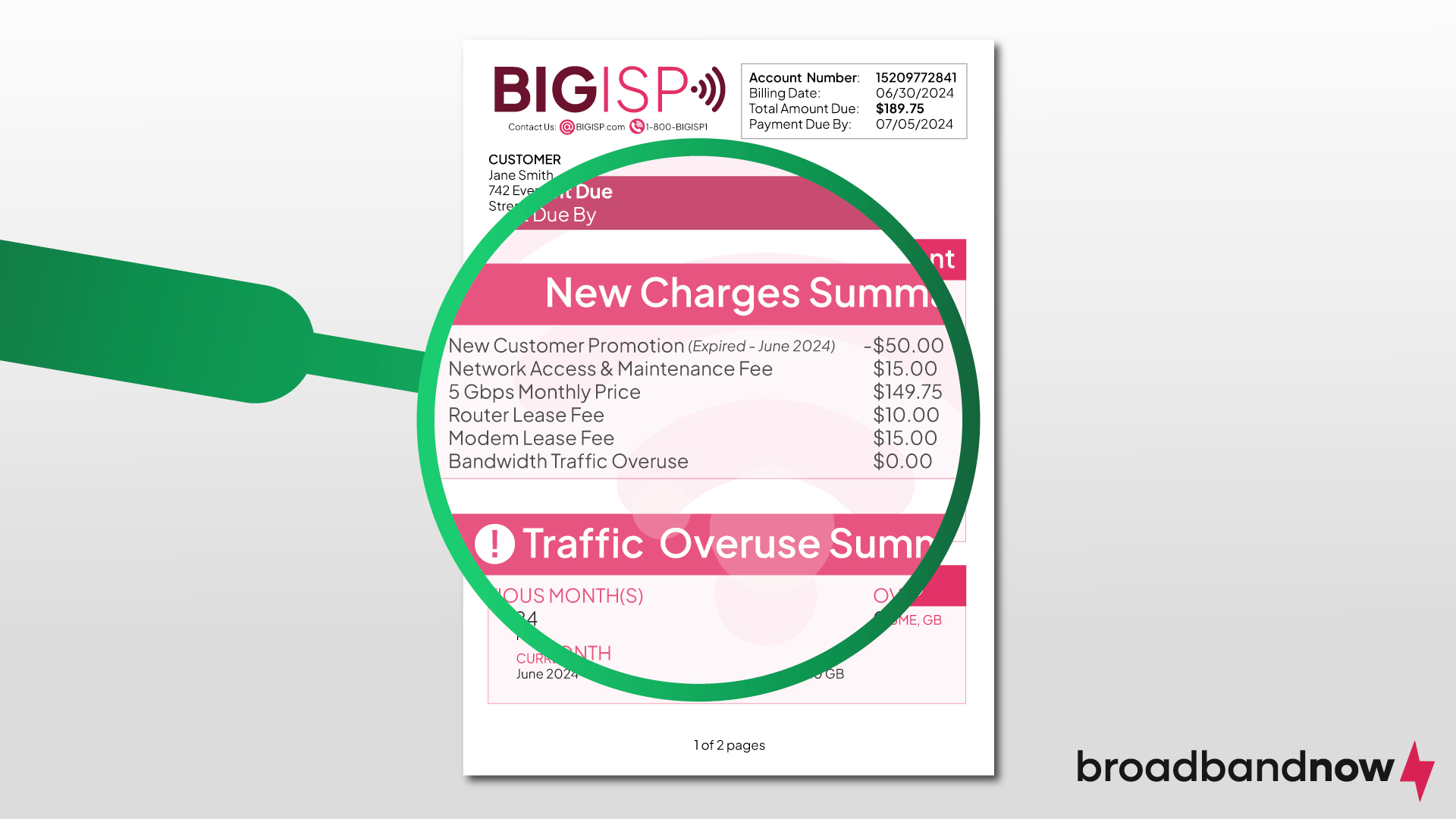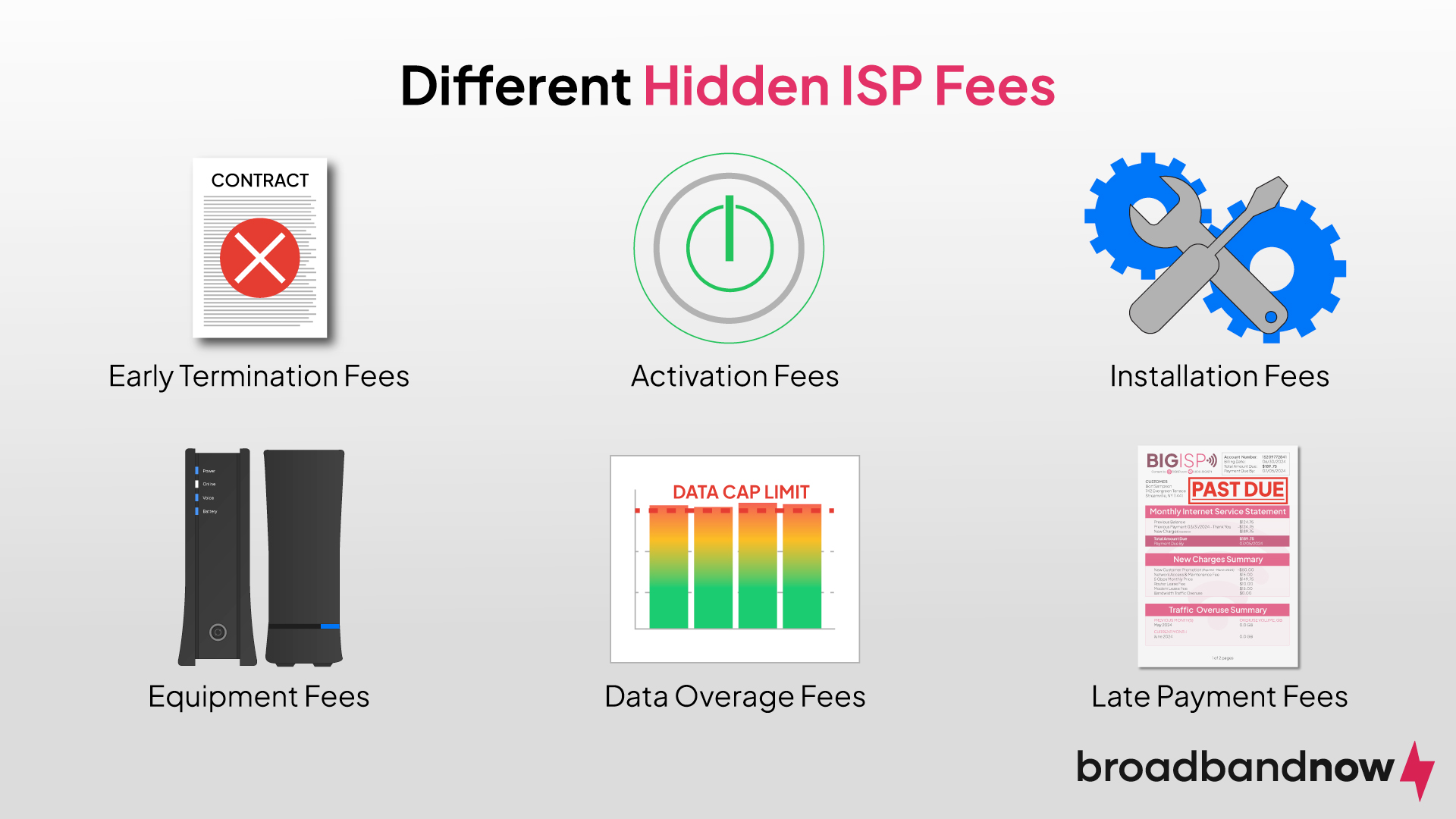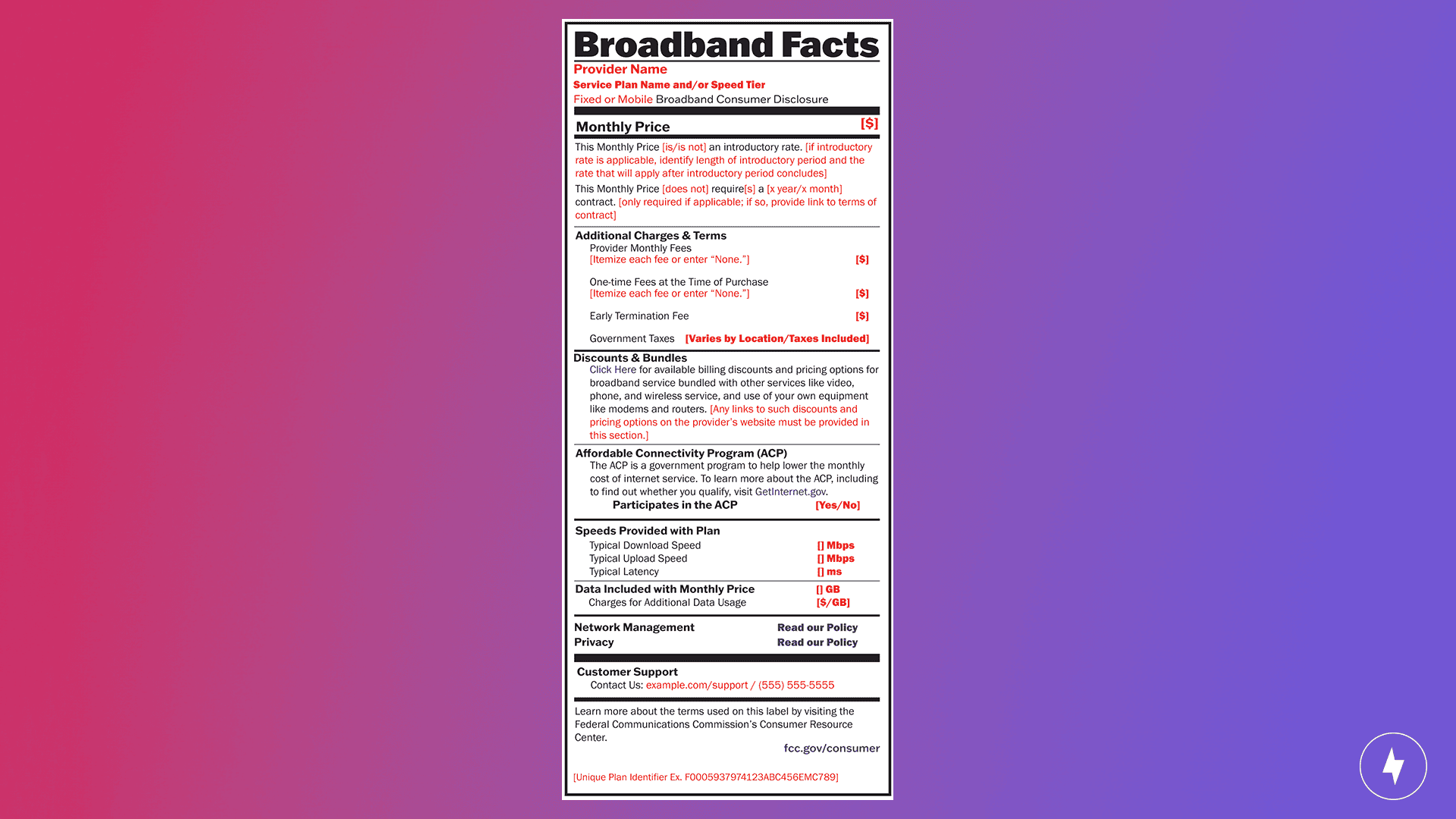How to Avoid Hidden Fees on Your Internet Bill
Internet providers are now required to be more transparent about all of their internet fees.

- Switching to a month-to-month internet plan rather than signing a contract with an ISP is an easy way to avoid the early termination fee.
- Most fees are avoidable, but some will come as a requirement from certain ISPs, such as professional installation fees and equipment fees.
- Broadband consumer labels allow consumers to see what an internet plan offers upfront, including hidden fees.
Nobody looks forward to paying internet bills each month and seeing extra charges attached to them. While most internet service providers (ISPs) offer straightforward pricing, you might be saddled with hidden fees in the fine print when signing a contract. These additional charges can increase your monthly costs by about $20–$50 or more, turning an advertised $60 monthly plan into an $80 or higher reality. Here are some of the costly internet fees and ways to avoid them when opening your next bill.
Different Hidden Internet Fees and How to Avoid Them

While some fees are specific to select ISPs, the following are the most common. Your provider should mention these fees upfront when you purchase your internet, but knowing what and how these fees can show up on your bill beforehand will save you time and money.
Early Termination Fees
Signing a contract with an ISP typically means you plan to stick with them in the long term. However, situations that might require you to cancel your service early can arise. Depending on your internet provider, breaking this agreement before your contract ends can result in a hefty early termination fee (ETF). These fees can range from $50 to $350 or more, depending on the remaining time on your contract. This fee can be steep enough to negate anything you might save by switching providers.
Activation Fees
If you’re on a new internet plan, chances are your first bill might be higher than your plan’s advertised price. If that’s the case, you were probably charged an activation fee, which typically ranges from $20 to $100. Although this is a one-time fee and won’t appear again on your consecutive bills, seeing it the first time around can be daunting, especially without notice.
Installation Fees
Just like activation fees, you’ll only get an installation fee once. This fee covers the cost of sending a dedicated technician out to install your indoor equipment. Professional installation fees typically range from $60 to $150, with some providers charging more for complex installations. Although having a professional install your internet is time-saving and convenient, it’s still a steep price that can add to your bill.
Equipment Fees
Your ISP will likely offer a modem with your internet plan, but you might be in charge of providing the rest of the equipment for your home, such as a router and a Wi-Fi extender. You can lease them through your ISP but at the cost of a monthly rental fee, which often ranges from $10 to $20 per month. Over a year, this adds up to $120 to $240 in rental costs. Additionally, you’ll want to ensure that you return any equipment you rent once you’ve reached the end of your contract or if you plan to switch to another provider. If you’re not careful, you may end up with a no-return equipment fee on your next bill.
Data Overage Fees
Most ISPs offer generous data caps per month with their services. However, if you go over your allotted amount each month, you could face slower service and overcharge fees, which can quickly add up if you go too far over your monthly cap. The typical charge is around $10 for every 50 GB of excess data. If you’re in a rural area, these caps might be even lower due to the nature of your internet service.
Late Payment Fees
Whether you have a contract or you’ve gotten an internet plan without one, paying your bills on time is important. If you’re not careful, you could end up with a late payment fee — in other words, you’d be paying more money for not paying your regular service fees. Late payment fees typically range from $5 to $20. Some ISPs offer a flat rate for fees, while others may add interest over time. Either way, you’ll want to pay off those late fees as early as possible and prevent yourself from paying them again.
Other Uncommon Fees
The fees listed above represent charges you will likely find across most ISPs. However, there are other fees that people might not know exist.
- Add-ons and Upgrades: In addition to standard rates, add-ons or upgrades, such as unlimited data or phone and TV service, can be charged to your bill. These charges can be one-time or monthly.
- Universal Service Charge: ISPs may include this service charge in order to contribute to the universal service fund, which pays for broadband used in emergency services or government operations. It also funds libraries, schools, and other areas that use the internet.
- Infrastructure Fees: Some providers add this as a surcharge to cover infrastructure costs. This fee covers a number of charges, such as network maintenance and technology service.
About Broadband Consumer Nutrition Labels

In April 2024, the Federal Communications Commission (FCC) implemented broadband consumer labels designed to provide comprehensive and clear information about different internet providers. Modeled after FDA nutrition labels, consumers can read through these labels to better understand an ISP’s internet service, including any fees it may charge its customers. These labels are now mandatory for all internet providers and must be displayed at the point of sale. Customers can also read about promotions and deals, internet speeds and other information that might be necessary. These labels are a great way to learn about each ISP quickly and understand what to expect when choosing one for your household.
Frequently Asked Questions About Hidden Internet Fees
How much should I expect to pay for my internet bill?
You’ll know how much to pay upfront when you buy an internet plan from an ISP. In this case, you should expect to pay the price as advertised at the time of purchase. If you find that you’re paying more for your bill than you expected, check to see if you have any extra fees attached to your bill.
Can I dispute a false charge on my internet bill?
We recommend contacting your ISP’s customer support service if you find any false charges on your internet bill. In most cases, these fees can be waived, provided that you give proof of them being faulty bill charges.
What other information comes with Broadband Consumer Labels?
In addition to prices and fees, Broadband Consumer Nutrition Labels include information about contracts, download and upload speeds, ISP policies, and customer support contact information.
What other information comes with broadband consumer labels?
In addition to prices and fees, broadband consumer labels include information about contracts, download and upload speeds, ISP policies and customer support contact information.
What are equipment rental fees and can I avoid them?
Equipment rental fees are monthly charges for leasing a modem, router or gateway device from your ISP, typically ranging from $10 to $15 per month. You can avoid these fees by purchasing your own compatible equipment, though you’ll want to verify that your device is approved by your provider to ensure proper functionality and technical support.
Why did my internet bill increase after my promotional period ended?
Your internet bill increased because promotional pricing expired, which typically occurs after 6 to 24 months of service depending on your provider. ISPs offer discounted introductory rates to attract new customers, and once this period ends, your monthly rate automatically reverts to standard pricing, which can be significantly higher than your initial cost.